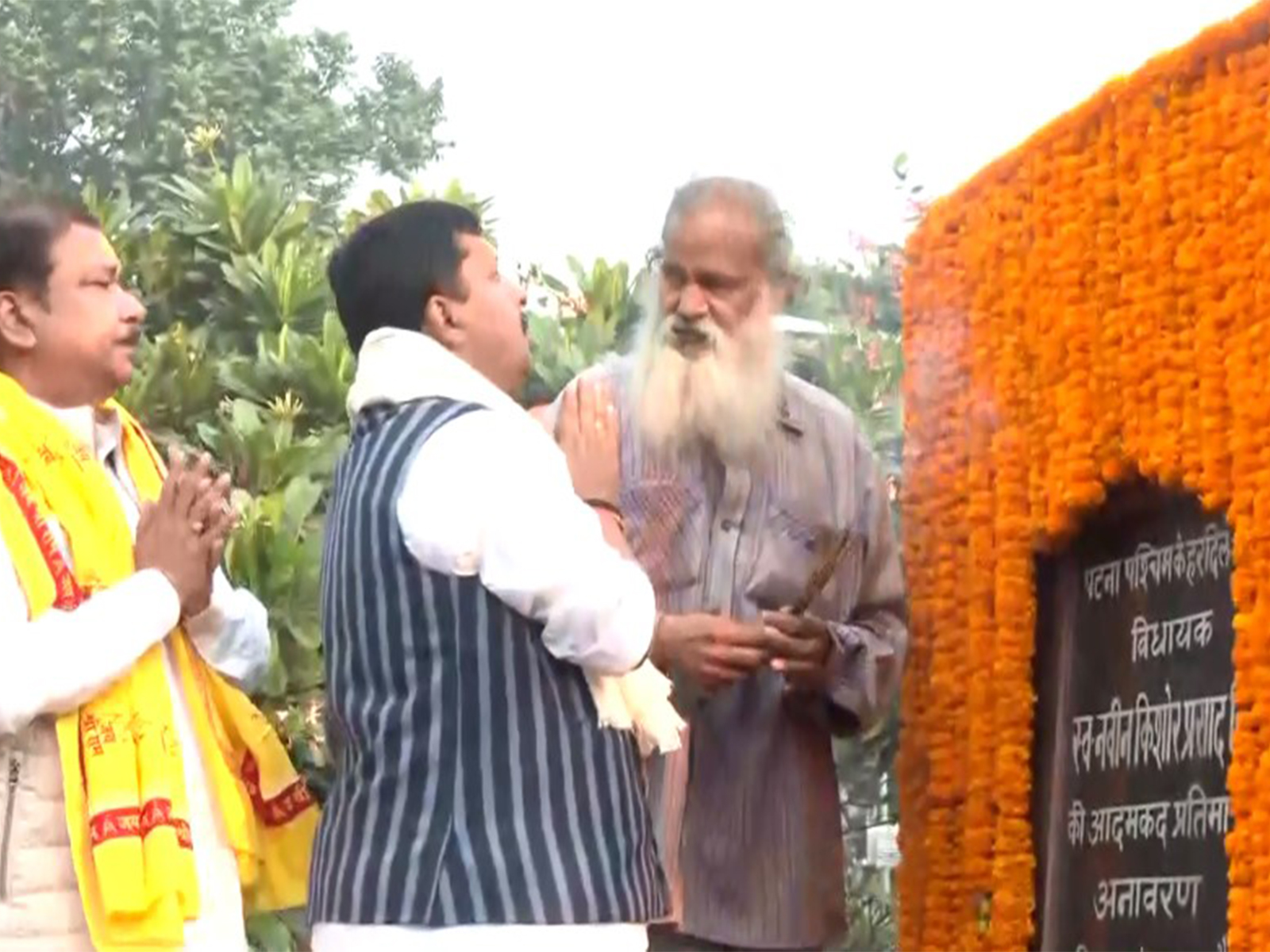Assam: Aaranyak conducts Hoolock Gibbon conservation training for forest department staff
Sep 24, 2024

Guwahati (Assam) [India], September 24 : Assam's premier biodiversity conservation organisation 'Aaranyak' with a mission of carrying out research, training and conservation activities in Northeast India, conducted a training programme on Hoolock gibbon conservation for frontline forest staff of the state's Forest Department.
The week-long and residential training was conducted in collaboration with Jorhat Forest Division with support from the Habitats Trust, and IUCN Primate Specialists Group for the 4th batch of forest staff from September 16 to 22.
Twenty-two frontline staff from 10 Forest divisions of Assam specially Cachar Forest Division, Dima Hasao East Forest Division, Dima Hasao West Forest Division, Doomdooma Forest Division, Hailakandi Forest Division, Karbi Anglong East Forest Division, Karbi Anglong West Forest Division, Sivsagar Forest Division, and South Nagaon Forest Division, were trained.
The Western Hoolock gibbon (Hoolock hoolock), the only ape in India, is found only in the seven northeastern states of India situated on the southern bank of the Dibang-Brahmaputra river system.
However, poaching, encroachment, and habitat fragmentation pose the biggest threats to gibbons in India.
Added to this situation is the lack of information about the Hoolock gibbon in different sections of the people including the newly appointed foresters of the Assam Forest Department.
The frontline staff who work in the field are unaware of the various facets of the Hoolock gibbon conservation strategy.
Keeping this fact in view and to generate conservation tempo in the frontline in the states of Assam, Aaranyak has designed this series of "Training of Forest Frontline staff for the Conservation of Hoolock Gibbon in Assam in 2024."
A wide range of related topic areas were covered including -- Biodiversity in Northeast India and conservation, primates conservation in Northeast India with special reference to Hoolock gibbon, Gibbon census or population estimation, Gibbon data collection, maintaining and reporting.
It also included techniques of floristic study, Gibbon habitat characteristics and restoration, population and habitat monitoring, Gibbon rescue and rehabilitation, global positioning system and use in the field, and legal orientation (Wildlife Laws and their application).
This course provided participants with an initial understanding of the basic principles of primatology, and experience with the methods and techniques used in field research. The course consists of daily lectures and field exercises.
The training was initiated in the Gibbon Conservation Centre of Aaranyak in Hollongapar Gibbon Sanctuary, Mariani, Assam which was inaugurated by Nandha Kumar IFS, Divisional Forest Officer, Jorhat Forest Division.
Kumar welcomed the trainees and requested them to be very serious about gaining hands-on knowledge of the equipment and biodiversity in general and Hoolock gibbon conservation in particular.
During the training, Dr IC Baruah of Assam Agricultural University, Dr. Prabal Sarkar of University Science and Technology Meghalaya, Dr Bhaskar Choudhury from Wildlife Trust of India, Ajoy Kumar Das of Guwahati High Court, Gunin Saikia, Former Deputy Conservator of Forest, Mridu Paban Phukan from Wildlife Conservation & Study Centre, and Aaranyak's Arup Kumar Das, Akshay Kumar Upadhaya, Simanta Medhi, and Dr Dilip Chetry trained these forest officials.
The convocation of this training was held under the chair of Dr. Prabal Sarkar, Professor, Department of Zoology, University of Science and Technology, Meghalaya.
He thanked Aaranyak for helping the Assam Forest Department in capacity building of the new frontline staff for the conservation of the biodiversity of Assam.
Dr Sarkar also thanked the Assam Forest Department, especially the Jorhat Forest Division and the local community for the support throughout the training Programme.
The training concluded with the distribution of the study material such as training manuals, Gibbon books, posters, stickers and certificates, among the trainees.






















